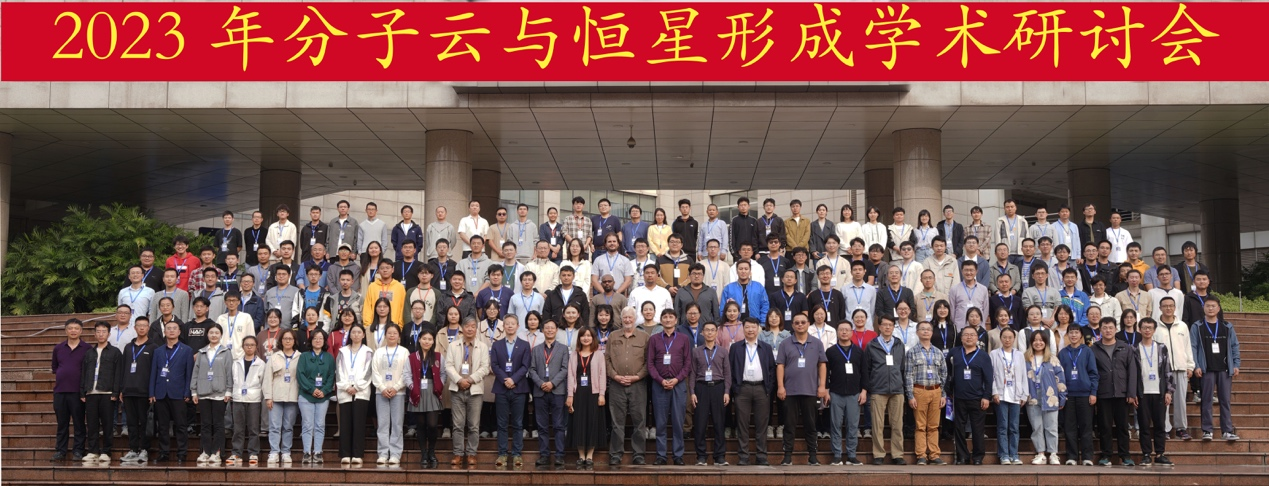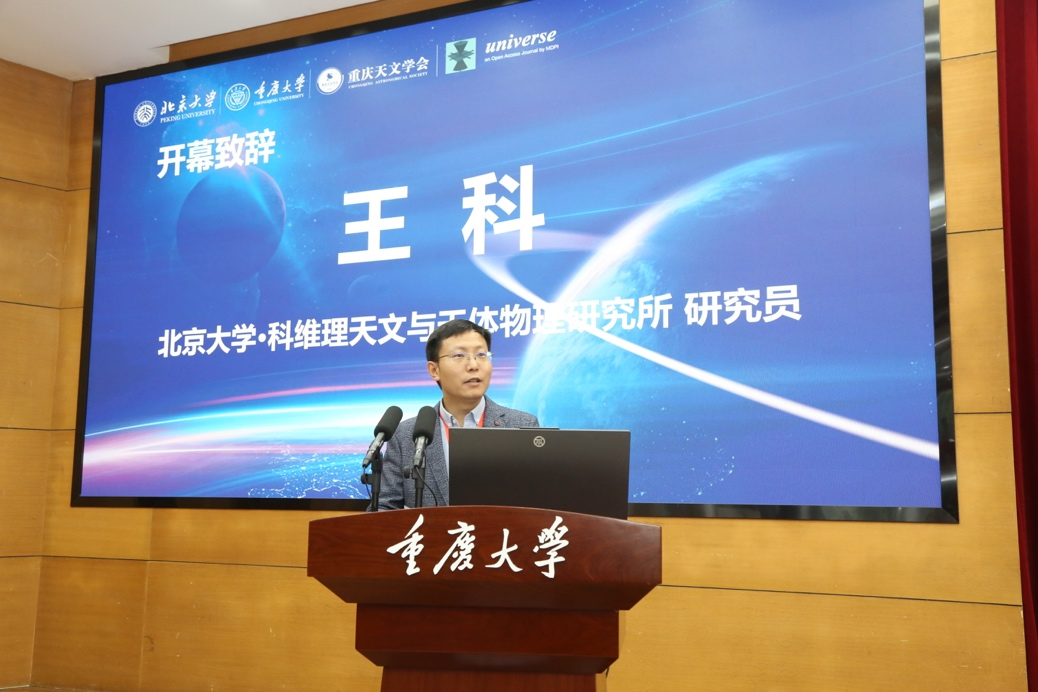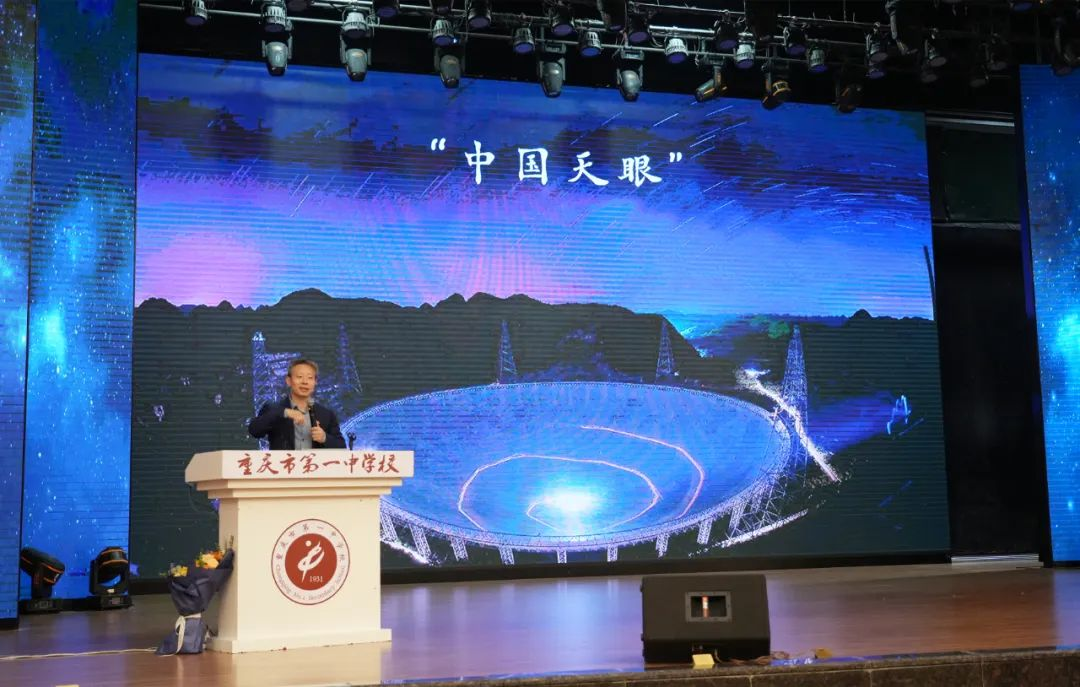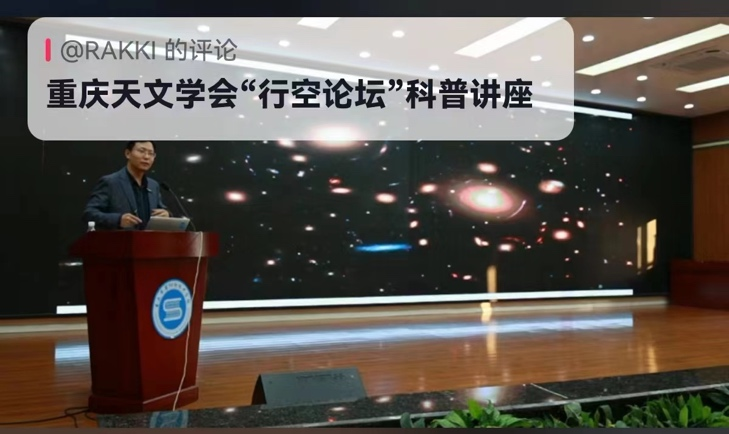The 2023 Annual Conference on Molecular Clouds and Star Formation (SF2023) was held in Chongqing during October 26-31, 2023. The conference was hosted by the Kavli Institute for Astronomy and Astrophysics (KIAA) at Peking University, and co-hosted by Chongqing University and Chongqing Astronomical Society. The KIAA star formation group led by Ke Wang organized the conference with colleagues in Chongqing. PKU graduate students Fengwei Xu won the outstanding talk for young researchers, and Keyun Su won the outstanding poster.

Group photo: 213 participants from 35 institutes attended SF2023 in Chongqing, reaching a record high in the conference series.
Star formation is a fundamentally important research field in astronomy. The past years have seen a drastic growth of the Chinese community in this field. The SF2023 conference inherited a continuous community-wide effort in promoting the research and collaboration mainly among the Chinese star formation community, starting from the 2015 conference in Delingha, followed by Dali (2016), Yichang (2017), Lhasa (2018), Altay (2019), and Nanjing (2022, online). The SF2023 conference in Chongqing was attended by 213 researchers from 35 institutes. Leaders from the Chongqing University, School of Chemistry and Chemical Engineering in Chongqing University, and Chongqing Astronomical Society greeted the participants in the opening ceremony.

Prof. Ke Wang of KIAA welcomed the participants in the opening ceremony.
Topics covered by the SF2023 conference include surveys of the Milky Way, hierarchical structure of molecular clouds and associated kinematics, feedback in star formation, planet formation, magnetic fields, astrochemistry, extragalactic star formation, and new opportunities. Participants gathered in the auditorium area by the beautiful Minzu lake on the Chongqing University campus, and intensively discussed these topics during the 5-day meeting. As usual, new ideas and new collaborations have been sparkled during such discussion. SF2023 included 14 invited talks, 54 oral presentations, 49 posters, and 1 public talk. The conference awarded 6 outstanding talks to young researchers, and 6 outstanding posters.


Prof. Di Li of NAOC (left) and Ke Wang of KIAA (right) gave public talks at local schools during and after the SF2023 conference. More than 1500 students attended and over 500 thousand viewed the talks online.
The SF2023 conference was supported by the National Natural Science Foundation of China and Universe – an Open Access Journal by MDPI.
More information about the conference can be found at the SF2023 conference website: https://sf2023.kiaa-pku.cn